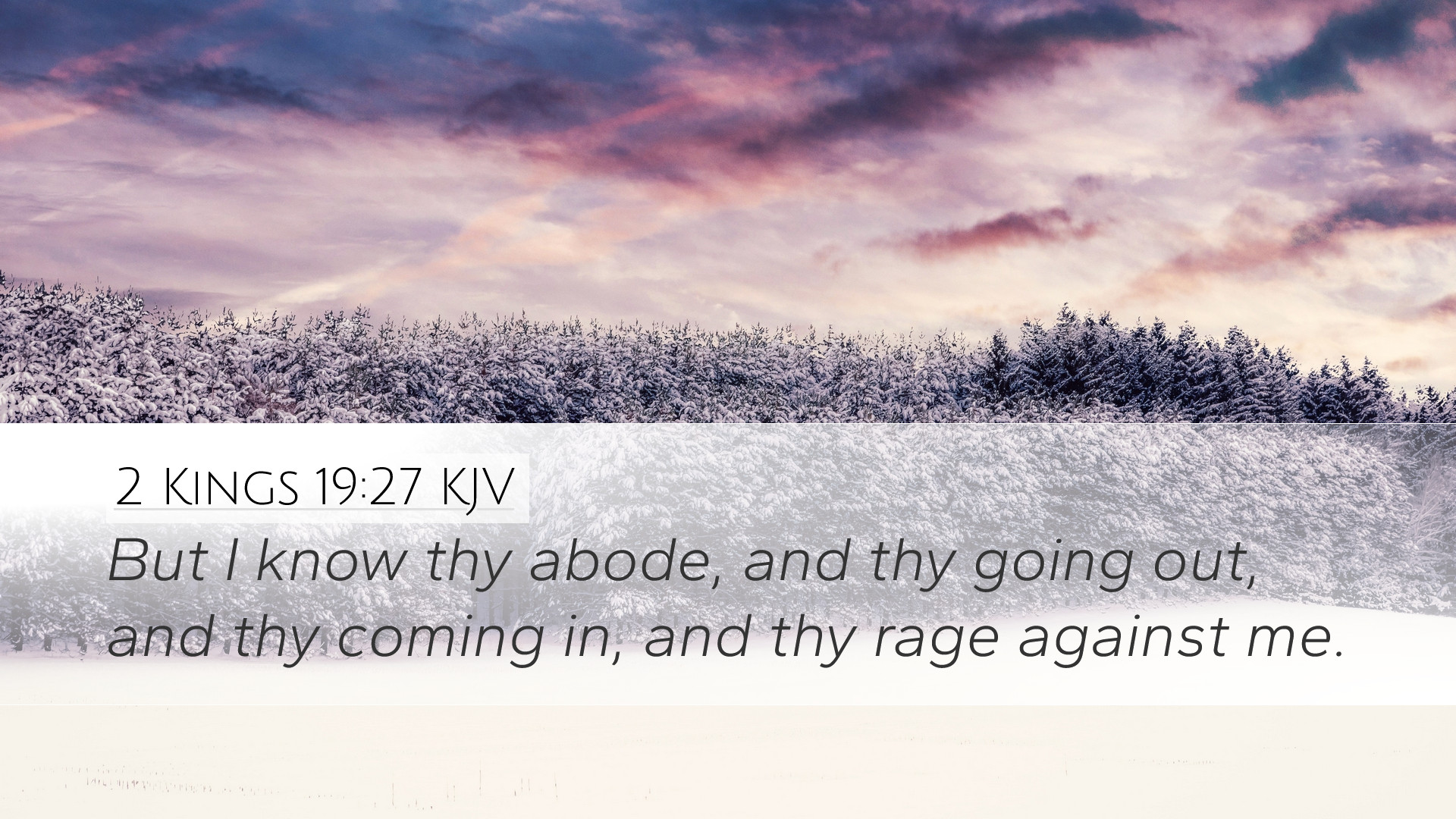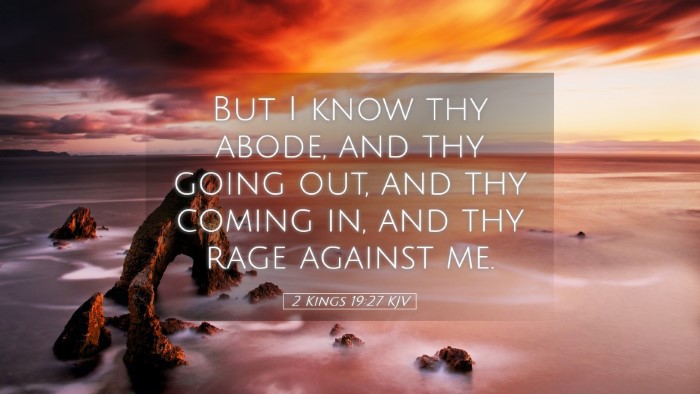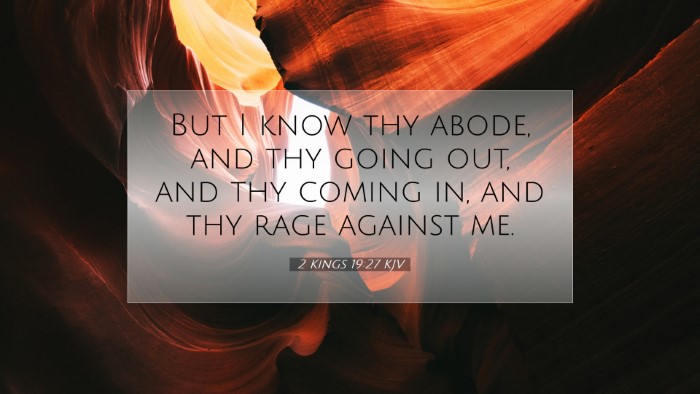Commentary on 2 Kings 19:27
Verse (2 Kings 19:27): "But I know your dwelling place, you are going out and your coming in, and your rage against me."
Introduction
The verse in 2 Kings 19:27 is part of the narrative concerning the Assyrian invasion and King Sennacherib's threats against Jerusalem and its king, Hezekiah. This verse highlights the omniscience of God in contrast to the futile rage of man. The commentaries of notable theologians offer deep insights into the implications of God’s knowledge and the realities of earthly power.
Understanding God’s Knowledge
Matthew Henry emphasizes God’s omniscience as a source of comfort for His people. He points out that God is fully aware of the enemies’ movements and intentions. This knowledge includes every aspect of their existence, underscoring that no plot against His people goes unnoticed.
In His omniscience, God reminds Sennacherib that he is not as powerful as he believes. Albert Barnes comments on the direct address of God to Sennacherib, asserting God’s authority over nations and rulers. This acknowledgment of divine oversight serves as a stark reminder that human defiance is futile.
The Rage of Sennacherib
God’s statement about Sennacherib’s rage illustrates not only the king's anger against the God of Israel but also the consequences of unrestrained pride. Adam Clarke notes that Sennacherib’s arrogance led him to believe in his own invincibility. This verse serves as a divine rebuttal to Sennacherib’s threats, showcasing that God sees both the outward actions as well as the internal motivations of the heart.
Application for Believers
This verse is rich in theological implications for pastors and scholars. Matthew Henry suggests that understanding God’s sovereignty encourages believers to trust in His power to protect and deliver. When faced with adversities, believers can rest in the assurance that God knows their situation intimately.
Albert Barnes encourages an attitude of humility, warning against the pride that led to Sennacherib’s downfall. It serves as a cautionary tale for all believers regarding the need for dependency on God rather than earthly might.
Moreover, Adam Clarke points out the necessity of prayer and reliance on God in times of crisis. Hezekiah’s decision to seek God rather than trust in military strength is a model for appropriate action in distress.
The Nature of Divine Response
God’s responses to human arrogance and hostility are consistent throughout Scripture. The verse foreshadows the eventual downfall of Sennacherib, demonstrating that the wrath of man does not thwart the plans of God. Matthew Henry asserts that God has a plan that cannot be hindered by human rage.
Albert Barnes notes God’s assurance to His people even amidst their circumstances. When God declares knowledge of their enemy’s actions, it reassures His people that they are under divine protection.
Conclusion
In summary, 2 Kings 19:27 provides profound insights into the character of God and the nature of human opposition to divine authority. For pastors, students, and theologians, it serves to remind and reinforce the importance of humility before God. Understanding that God observes and acts upon our world strengthens faith amidst adversity. The knowledge that God knows every nuance of our lives encourages believers to engage in prayer, reflecting on His sovereignty and providence.
As highlighted by esteemed theologians like Henry, Barnes, and Clarke, the implications of this verse extend far beyond historical context, supplying timeless truths applicable to the faithful in any generation.


